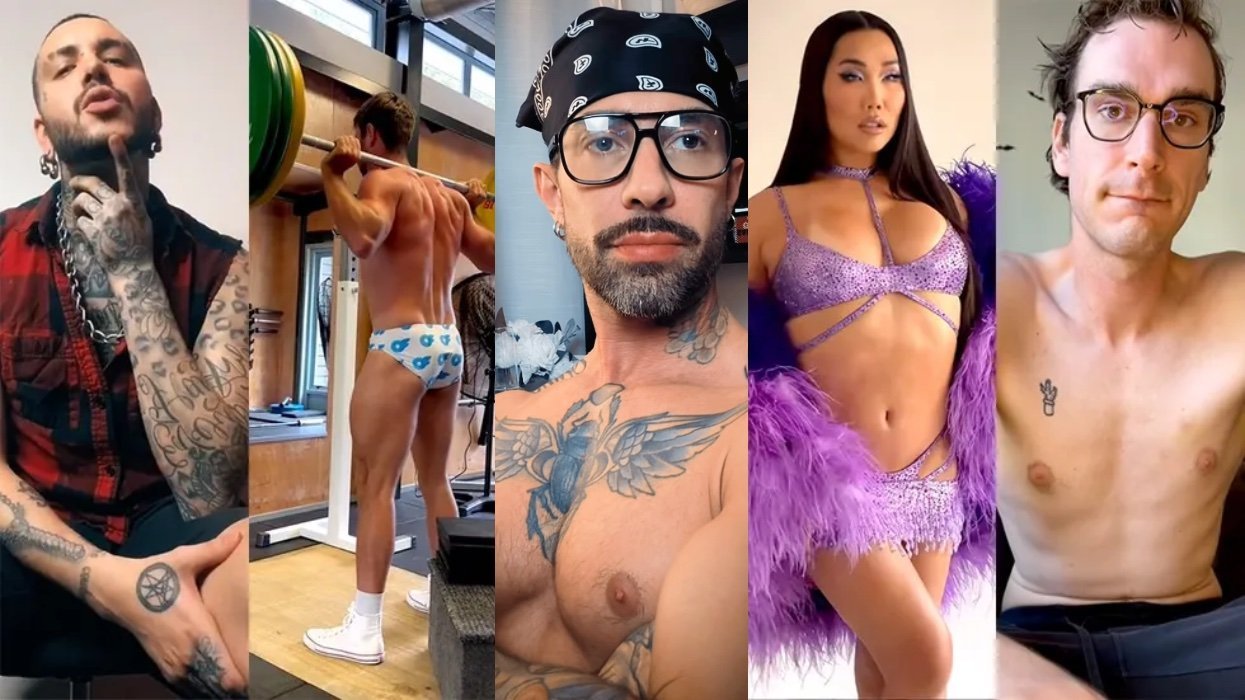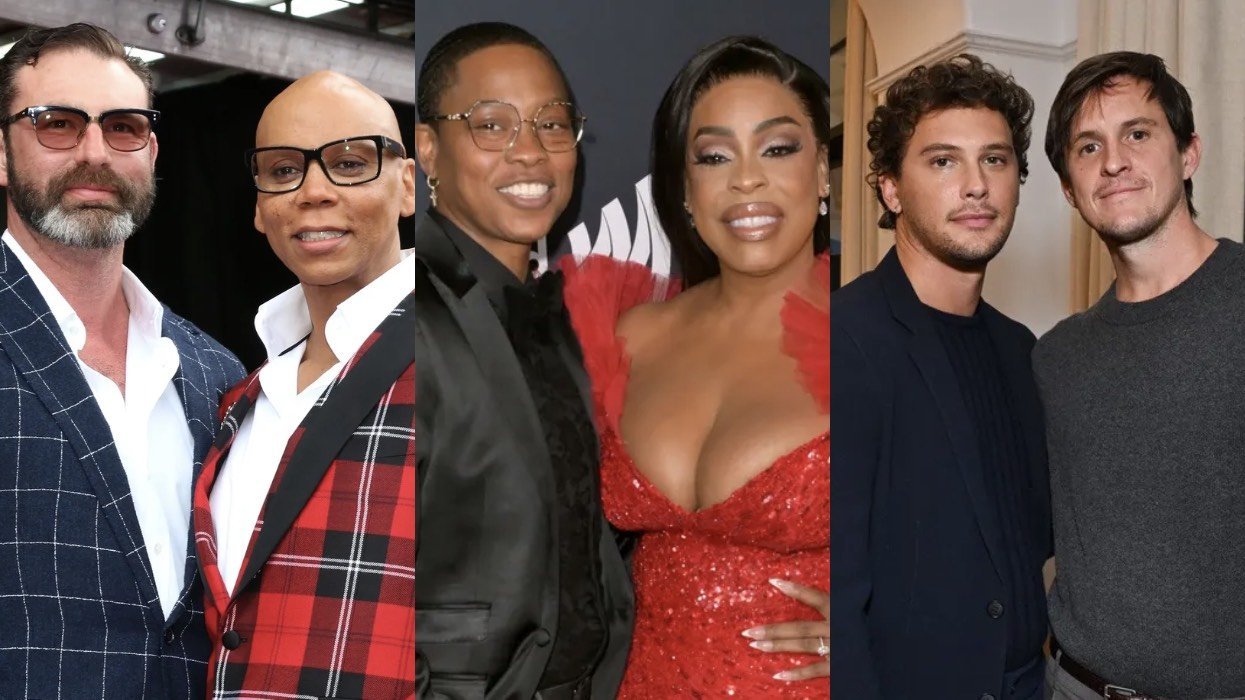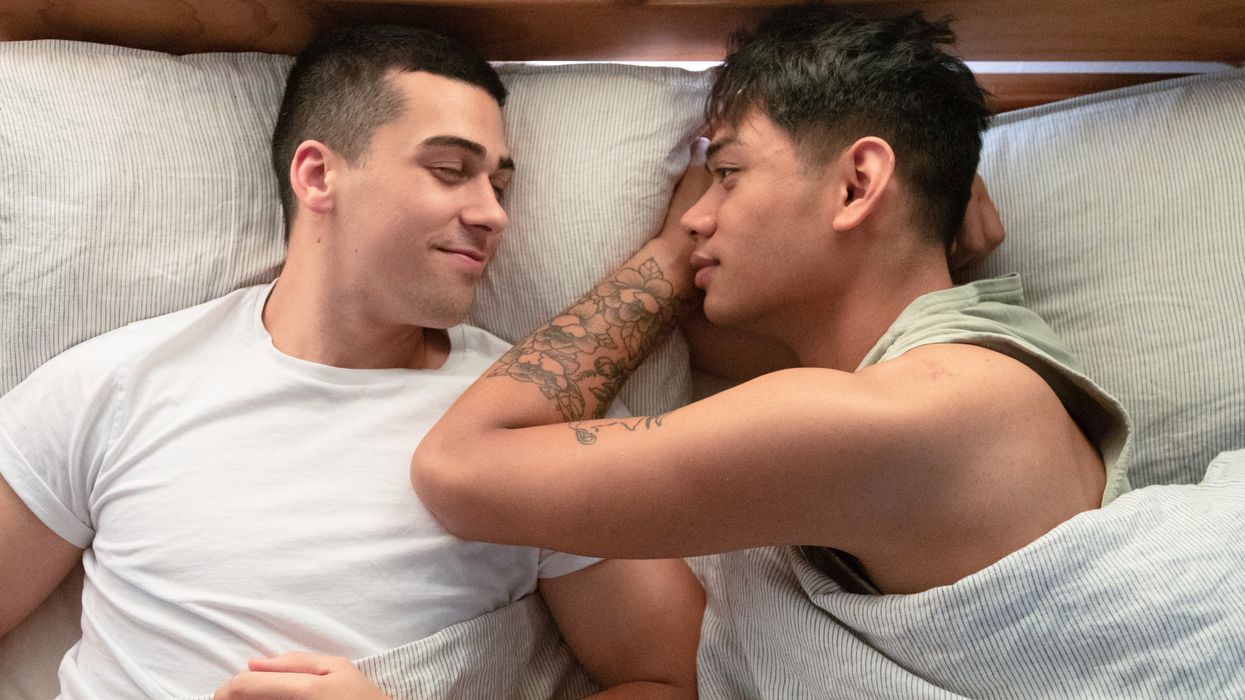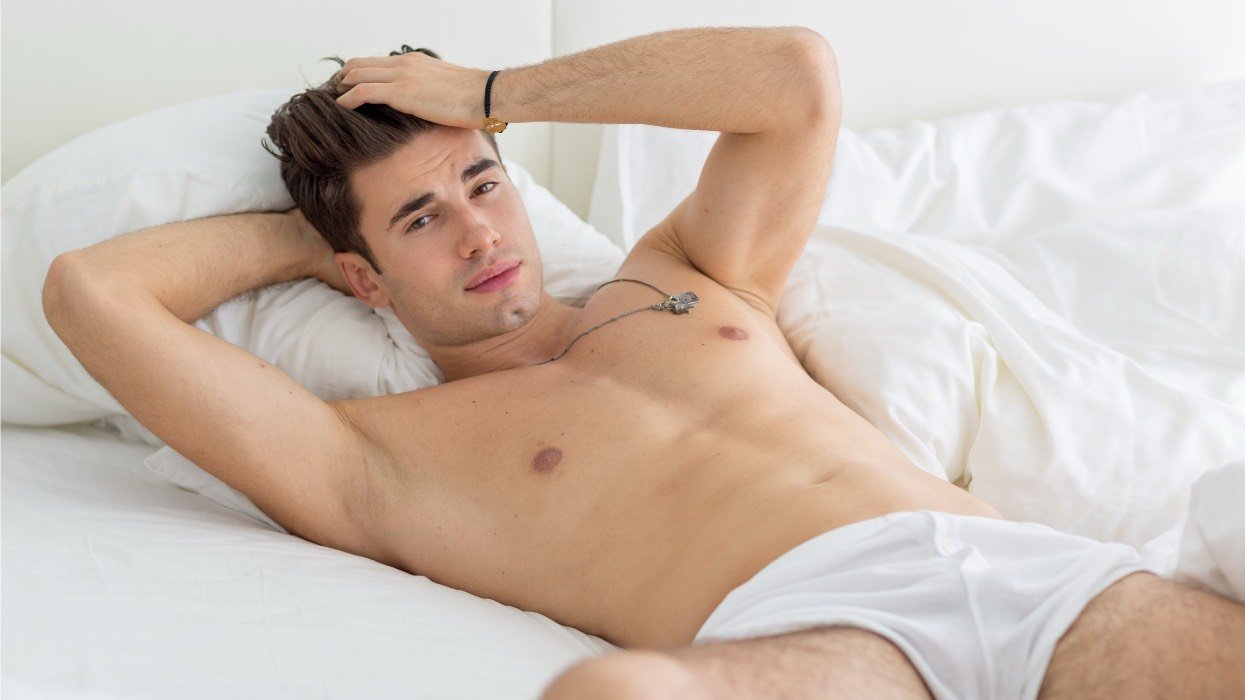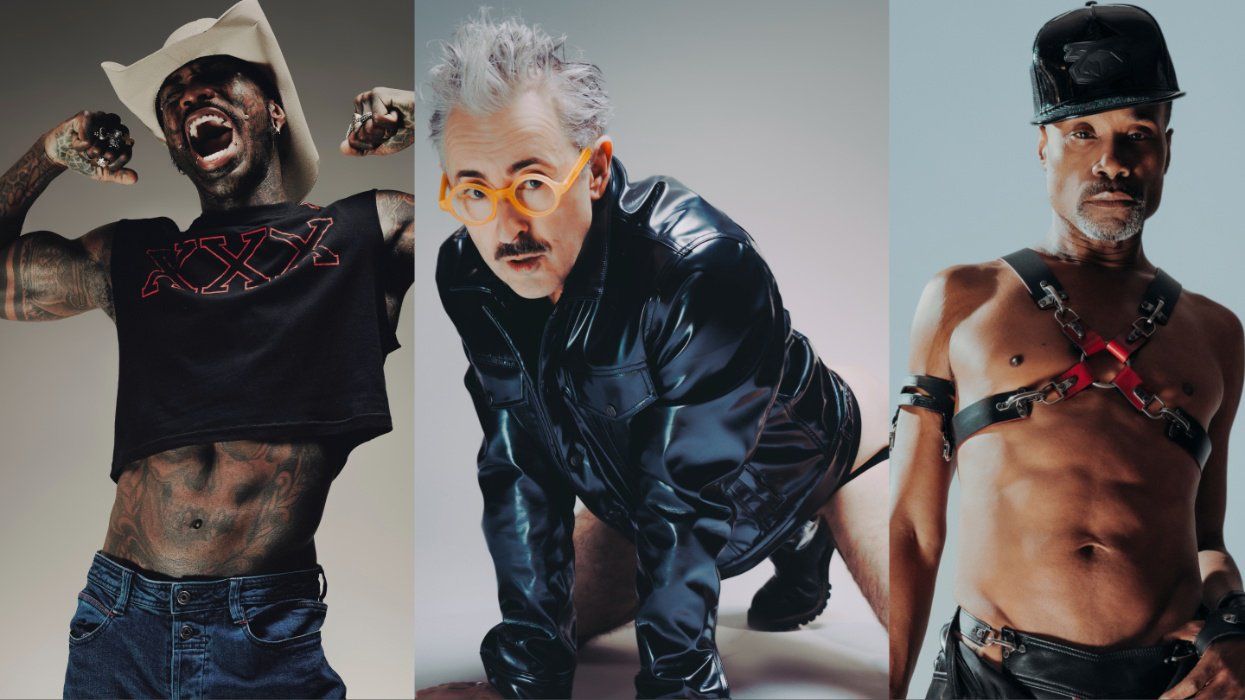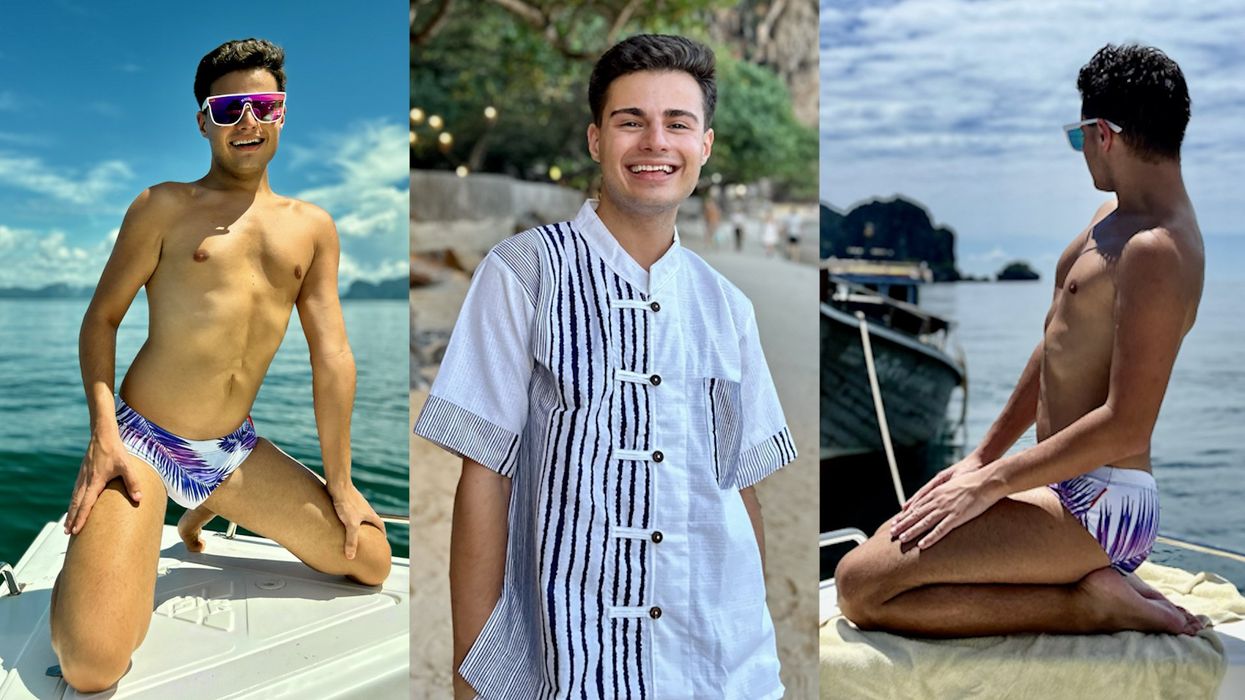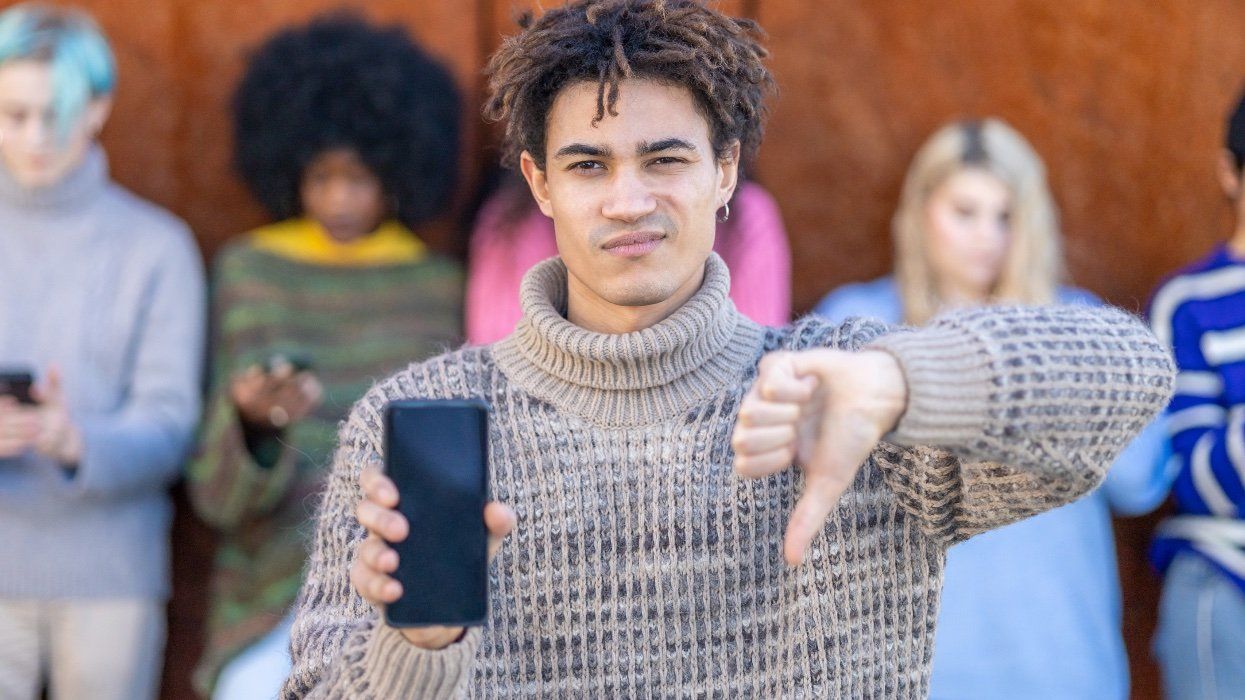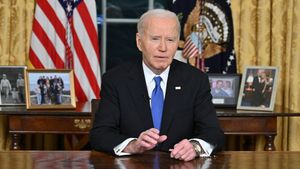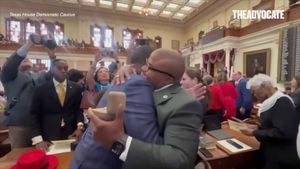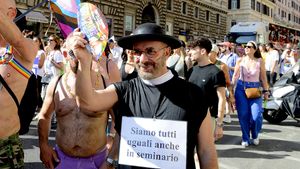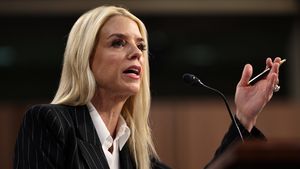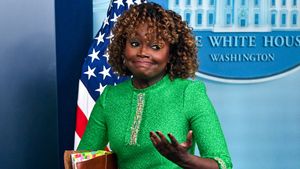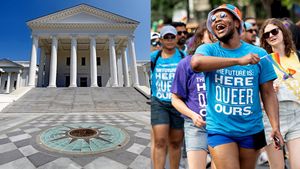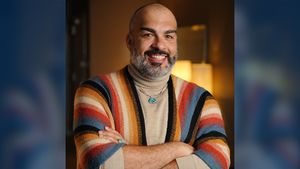For some, Thanksgiving is the official start to the most wonderful time of the year. For others, many of them LGBT, the holiday season–and Thanksgiving in particular–is fraught with stress and even loss as we figure out how to negotiate our families or how to negotiate without out them.
Same-sex marriage is legal in a majority of states now and polls show that just over half of Americans think being gay is no big deal. But every week there is another major news item about some assault, either physical or otherwise to an LGBT person who could easily be us and we are reminded not of how far we have come, but how long the road ahead remains.
Most of us born in the U.S. grew up with some version of a Rockwell Thanksgiving in our heads or our families’ heads as the ideal. And more often than not, we–the LGBT ones–were the daughters or sons who ruined that picture-perfect image for our straight families.
My first Thanksgiving as an out lesbian–outed at my high school and expelled just days earlier for being a lesbian–was terrible. My mother was furious, my father drinking more than usual. My grandparents knew something was wrong, but no one was talking about it. My sister and her boyfriend were hiding out, trying to keep out of the path of my mother’s simmering rage. I imagined the same scenario was being replayed at my girlfriend’s house across town.
Everything looked beautiful. My mother prided herself on appearances, as did most mothers of her generation. But there was a heavy, leaden silence that seemed unbreakable until I said or did something wrong. I have no idea what it was, although you’d think it would be emblazoned on my memory, but it was something utterly inconsequential that suddenly became a focal point for my mother as we sat around the table, me seated at the end, directly to her right, because I am left-handed and she never wanted me jostling another diner with a left elbow jab, because that would disrupt the perfect picture.
When the dam broke on the carefully constructed facade, it broke wide. Whatever I said or did–picking up the wrong fork, drinking water before grace, whatever–was the last straw. My mother’s fury at how I had shamed the family with my lesbianism and my expulsion in disgrace from the all-girl’s school she and my grandmother had also attended poured out over the Thanksgiving table like an over-turned wine bottle. I had ruined a family tradition and my presence at the Thanksgiving table was unwanted. She didn’t actually hit me, but her rage at me was like a series of blows. She really didn’t want to have to see or acknowledge me. Why did she have to have a lesbian daughter? Or, as she yelled across a stunned and silent table, “a c*ntsucker for a daughter? “My paternal grandmother whispering to my father, “What’s a c*ntsucker?” and my father saying, “Not now, Mom.”
There was no caption like that in any Rockwell painting.
My first out lesbian Thanksgiving was only the first in a series of Thanksgivings where my obligation to family and obligation to self were at odds. I dreaded those family gatherings and finally, when I was in college, I broke tradition, creating my own Thanksgivings with other lesbians who had been un-familied as I had been. Mine became the house where lesbians gathered to celebrate our love for each other and to hide the pain of being excluded from our families of origin. I made a warm and welcoming place for myself and for those who had been unwelcome in the very homes in which they had grown up.
And it was something to give thanks for.
Many of my friends still have those fraught Thanksgivings with families who still, in 2014, reject or refuse to acknowledge their LGBT status. Others have created their own families, yet can’t help feeling that sense of loss at not having the extended family we all grew up seeing on TV and in movies.
How do we give thanks when this holiday is often so emblematic of our marginalization as LGBT people?
We just do. Because for all the pain and suffering the majority of us have endured just for being lesbian, gay, bisexual or transgender, we have, in fact, acknowledged those identities. We have embraced who we are, we are living our LGBT lives as fully and firmly and completely as we possibly can and every year we grow more sure of those identities and their rightness.
We give thanks that it is 2014 and not even a decade ago there was only one state that allowed same-sex marriage and it was still considered a freak event that could never be replicated. We give thanks that it’s harder to take kids away from lesbian mothers, harder for employers to fire us, harder for public services to discriminate against us, harder for the world to call us names and get away with it.
We give thanks that we have found our own communities and we have found other people like us and that we know we are not the only ones, anymore, like we all once felt we were.
We give thanks for the great big mess that is the Internet where we are sometimes bullied but where we also have been able to reach out in our LGBT isolation and have other LGBT people reach back.
We give thanks for the first time we were loved by another LGBT person.
We give thanks for getting through our teenage years that were so very hard to navigate and into our adulthood which is differently difficult, but at least it is wholly our own and we give back by telling others that it does get better, because even if it’s just not having your mother scream at you across the Thanksgiving table, that is, in fact, better.
We give thanks that we are not among the thousands of LGBT people living under threat of imminent prison or death just for their existence in dozens of countries around the world that is not this country.
We give thanks that we can speak out here–we can attend an LGBT event without fear of arrest or a death sentence.
We give thanks that we can find books and magazines and websites that are for us and about us, and that at the end of the stories there is happiness, not suicide.
We give thanks that we can have babies together–or not.
We give thanks that we can live together–or not.
We give thanks that we can grow old together openly and with love.
We give thanks that we can have friends like us.
We give thanks that we are not homeless like many LGBT people are and we do what we can to reach out and help those who are.
We give thanks that we have recovered from our addictions to drugs, alcohol, risky sex, food that protected us and numbed us from the pain of not feeling like we could ever be who we knew we were and we reach out to support those LGBT people who are still struggling with those addictions.
We give thanks, if we are religious, for religious leaders who have opened themselves to compassion and welcomed us, finally, as God has always welcomed us.
We give thanks because we live in a nation where there is possibility for change and hope for the future.
Most of all, we give thanks for knowing who we are as LGBT people and for feeling no shame in that, because there is no shame in that.
So whatever your Thanksgiving plans, whatever stresses you may feel as you head over the river and through the woods to grandmother’s house–or not–remember that you are closer than you’ve ever been to who you want to be and give thanks for that. Remember that Thanksgiving doesn’t have to be fraught or lonely or empty–it can just be about giving thanks that you are here, that you made it to this place, that you are a proud LGBT person who is living her or his best life.
Give thanks for all these things and be grateful. Because what Thanksgiving is really about is gratitude for all we have. It is letting go of what we do not have and being oh-so-grateful for what we do have. And in 2014, even if we are still in the closet ourselves, we know there is a door that can open on that closet and that there will be people on the other side waiting to embrace us and welcome us into LGBT community. In 2014, we can give thanks for being lesbian or gay, bisexual or transgender. In 2014, Thanksgiving doesn’t have to be perilous, it can be glorious. Because we have more to give thanks for than we ever could have dreamed was possible.
Victoria A. Brownworth is an award-winning journalist, editor and writer and the author and editor of nearly 30 books. She has won the NLGJA and the Society of Professional Journalists awards, the Lambda Literary Award and has been nominated for the Pulitzer Prize. She won the 2013 SPJ Award for Enterprise Reporting in May 2014. She is a regular contributor to The Advocate and SheWired, a blogger for Huffington Post and a contributing editor for Curve magazine and Lambda Literary Review. Her reporting and commentary has appeared in the New York Times, Village Voice, Los Angeles Times, Boston Globe and Philadelphia Inquirer. Her book, From Where We Sit: Black Writers Write Black Youth won the 2012 Moonbeam Award for cultural & historical fiction. Her novels, Ordinary Mayhem and Cutting will both be published in winter 2014. @VABVOX












































